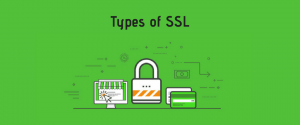PHP hosting is web hosting on a server that is able to interpret and execute PHP scripting language. The follwing article will explain the basics of PHP hosting.
What is PHP?
PHP is an acronym for “Hypertext Preprocessor”. PHP is a scripting language that is developed by the PHP group. The language is an open source interpreter language, wich means it is not compiled into machine code, but interpreted at runtime. PHP codes and snippets are usually embedded between HTML codes. The PHP snippets are then interpreted and produce dynamic content at runtime. An easy example is to output the current date and time, something wich pure HTML without a scripting language is not able to do.
PHP has similarities to the languages C, Perl and Java / Javascript. The main purpose of PHP is to create dynamic web pages and to provide a powerful, free tool to the masses to do so. PHP hosting is so common, because PHP became the most common scripting language due to many good reasons.
How does the execution of PHP scripts work?
PHP scripts are executed by the server, before sending the rendered web page to the browser. Beacuse it is a server-side language, there are different platforms that can deal with PHP. Linux, Windows and Unix are the most common server operating systems, that support PHP. The execution of PHP is independent of a client’s browser or PC, because the code is interpreted on the server-side, before contents are sent. Thus, every browser that receives the content “sees” the same result.
So how does the server know if a page contains PHP content? First of all, PHP pages are named “something.php” or “something.php3” or likewise. PHP codes within the page are contained by special brackets. Everything in between is interpreted and executed as PHP. There can be as many PHP-areas in one page, as you want.

What does a good PHP hosting provider offer?
When searching a PHP hosting provider, it is important to make sure, several things are installed at their servers. At first, you have to decide wether to host on Windows or Linux platforms. Usually, Linux platforms are the better and cheaper choice unless you have special requirements that only are possible on Windows servers. This is seldomly the case and so most people use PHP hosting on Linux servers. Then take care, that PHP is enabled and wich version is running at the host’s servers. Usually this information is given in the details of a hosting plan. Check out our hosting plan detail pages for this. If it’s not mentioned there, check out the PHP hosting provider’s detail pages.
It’s vital, that you make sure your PHP hosting provider really supports PHP >before< you sign up. There are hosting providers out there, that run servers without the use of scripting languages, or only PERL, but not PHP. If your server does not support PHP scripting, your pages will not be rendered as you intent, but your PHP codes will be output as plain HTML.



